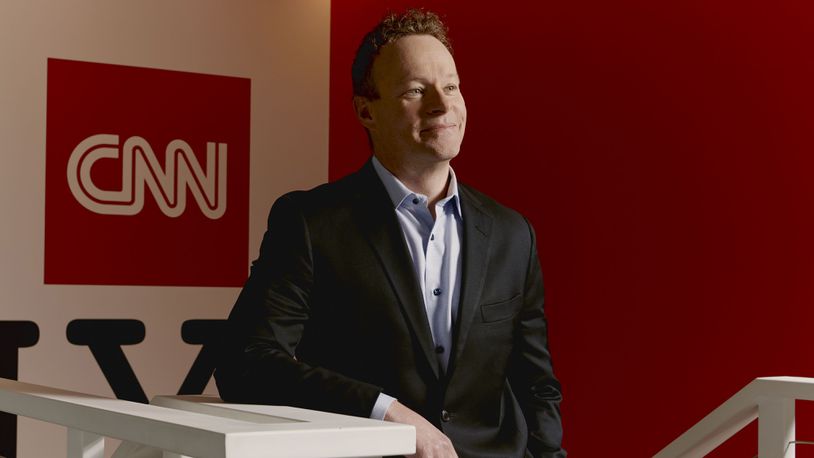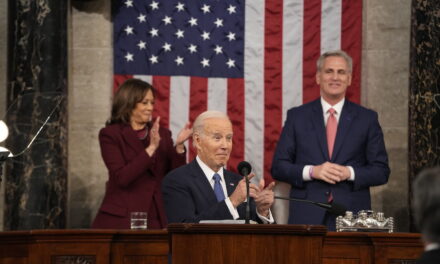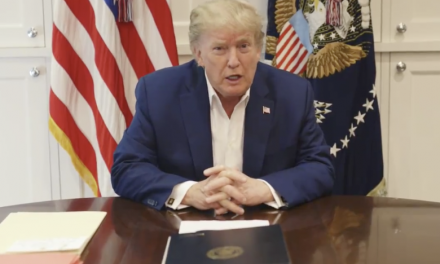Chris Licht’s tenure as the CEO and Chairman of CNN is reportedly over. He was a monumental failure so it’s hard to pick out just one cause of his termination, but the precipitating one was his widely criticized decision to host a Donald Trump town hall meeting in New Hampshire on May 10th. The final blow came when Tim Alberta of The Atlantic published his savage but accurate profile of Licht. Alberta spent seven months on the piece and did several in-person interviews, also enjoying access to a broad range of CNN employees. When it came out the headline was “Inside the Meltdown at CNN,” and it was clear that Licht had made a mistake in agreeing to cooperate. His last significant act as CEO, which came on Monday during the network’s daily editorial meeting, was apologizing to the staff for having anything to do with Alberta.
“I read that article. I found myself thinking, ‘CNN is not about me,’” he told employees. “I should not be in the news unless it’s taking arrows for you.”
“I fully recognize that this news cycle and my role in it have overshadowed the incredible week of reporting we just had and distracted from the work of every single journalist in this organization,” he added. “And for that, I’m sorry.”
His mea culpa didn’t save his job which was in real jeopardy already both because of infinitesimal ratings and the loss of faith from the workforce, particularly after the Trump town hall. He was shit-canned on Wednesday by Warner Bros Discovery CEO David Zaslav.
At Semafor, Ben Smith has an interesting perspective on what Licht’s failure represents. He mentions the factors I noted above, but brushes them aside in favor of a take that the era cable news is over and Licht was doomed from the start: “the most obvious explanation is the one that people in media have been saying so long we’ve stopped believing it: Cable news is in a broad, secular decline. Even the best managers and executives won’t be able to reverse that.”
As evidence, Smith notes that both Fox News and MSNBC are also suffering from bad ratings, and it’s probably true that news production and consumption has become so fragmented that the cable news industry will never return to its previous heights. The problem with this analysis is that it doesn’t address the particular factors that led to Licht’s demise. These are spelled out in great detail in Alberta’s piece. His management style fell flat almost the moment he walked in the door determined to denigrate everything his popular predecessor Jeff Zucker had done. He persistently criticized the staff and on-air talent’s work during Zucker’s tenure without adequately explaining what kind of changes would please him. His hiring and firing pattern didn’t logically line up with his mission statement, including most famously his decision to retain the controversial Don Lemon and bank everything on a morning show featuring him.
Lemon stands out because his vociferous criticisms of Donald Trump and his political movement were precisely the things Licht and his boss Zaslav were determined to eliminate. Their research indicated that CNN’s loss of audience was largely attributable to losing Trump-sympathetic viewers. They considered CNN’s coverage of the COVID-19 pandemic to be one of the chief causes of this, as the network was relentlessly dismissive of vaccine skeptics and anyone who protested against lockdowns and school closings.
Licht was hired to bring these people back into the fold, and the idea was that they’d respond over time to a new kind of coverage that was less editorial in nature and more straight news. In other words, they wanted to reestablish trust, and that had to begin by respecting the opinions of MAGA world. This idea reached its apogee when Licht decided to host a town hall with Trump and fill it with an exclusively Republican audience. The result was a completely predictable disaster.
So, Licht had some personal weaknesses and made some bad decisions that contributed to his failure. A different CEO with the same mission might have engendered more good will, had a bit more success and lasted longer in the job. But we all know that ratings are the name of the game, and irrespective of whether the industry as a whole is doomed, Licht oversaw a catastrophe in this area. In March, when Nielsen found a 61 percent decline in CNN’s ratings, Zaslav too responsibility and aggressively defended Licht’s performance.
Despite the poor ratings, Licht has the support of his boss, Warner Bros. Discovery CEO David Zaslav, who gave a pep talk to network managers urging them to steer clear of politically oriented commentary and partisanship.
“Ratings be damned,” he said. “Let’s focus on who we are. This is our mission. This is our legacy. And this is our journey together.”
…CNN saw strong ratings under the leadership of Licht’s predecessor, Jeff Zucker, and Zaslav said he recognized that a more partisan approach could bring more viewers and money, but that “it’s not what I came here to do,” according to a transcript of Zaslav’s speech.
You can see an obvious logical tension in Zaslav’s responses here, as everyone knows you cannot long ignore ratings. The theory was that they could improve ratings by avoiding “politically oriented commentary and partisanship,” and as long as that was not proving out everyone’s job was at risk.
The obvious question to ask by March was whether or not the premise was flawed. Maybe they just needed more time. Maybe the problem was in the execution. But you couldn’t just say “ratings be damned, we have a mission and we’re on a journey together.” That’s an ideological project completely unsuitable for a for-profit enterprise with investors.
By focusing on an industry-wide decline, Smith gives Zaslav and Licht a pass on this. It’s one thing to say that cable news ratings are trending down and no amount of good leadership can do anything to reverse it. But we can still look at how networks are preforming relative to each other. CNN has done the worst in the post-Trump era.
Now, there’s an argument that CNN’s attempted transformation is really driven by Zaslav’s right-wing mentor John Malone who is a major investor and sits on the board. Under this theory, the idea is to stamp out CNN’s supposed liberal bias as a way of helping the Republican Party, and ratings be damned. I can’t completely discount this possibility, but I know that major investors generally don’t like to see their money disappear. Whether it’s his first priority or not, I assume Malone wants CNN to get good ratings. And if he truly doesn’t care, the rest of the investors surely do.
For my money, CNN’s ratings are down because the natural audience for politically-themed television is partisan. How many people avidly watch sports without rooting for one team over the other? It’s a small percentage.
Finally, imagine if after losing the Super Bowl in January the owner of the Philadelphia Eagles had stolen the Vince Lombardi Trophy from the Kansas City Chiefs and the police and natural guard had to be called out to get it back by fighting off a mob of Eagles fans who had been convinced the game was rigged. That mob is who Zaslav and Licht sought to respect and win back. They called this a “centrist, just-the-facts bent.”
The plan might have had some minuscule chance of success if Trump had gone away, but far from disappearing he’s the frontrunner for the Republican Party’s presidential nomination in 2024. That means CNN doesn’t have the time and space to gradually drift back to the center as the fever of Trumpism dissipates. Instead, the found themselves hosting a partisan town hall for him, effectively taking the side of the trophy-stealers.
So, what does Licht’s failure represent?
I think it shows that it’s impossible to try to shoot down the middle when one side is fascist without siding with the fascists. I think it shows the limited appeal of “both sides” journalism, particularly in the Age of Trump. I think Zaslav’s whole idea is wrong and doomed. So, I don’t agree with Smith that the story here is about cable news in general. I think this is one of the biggest fuckups in media history, and it’s particular to the people running Warner Bros. Discovery and CNN.







